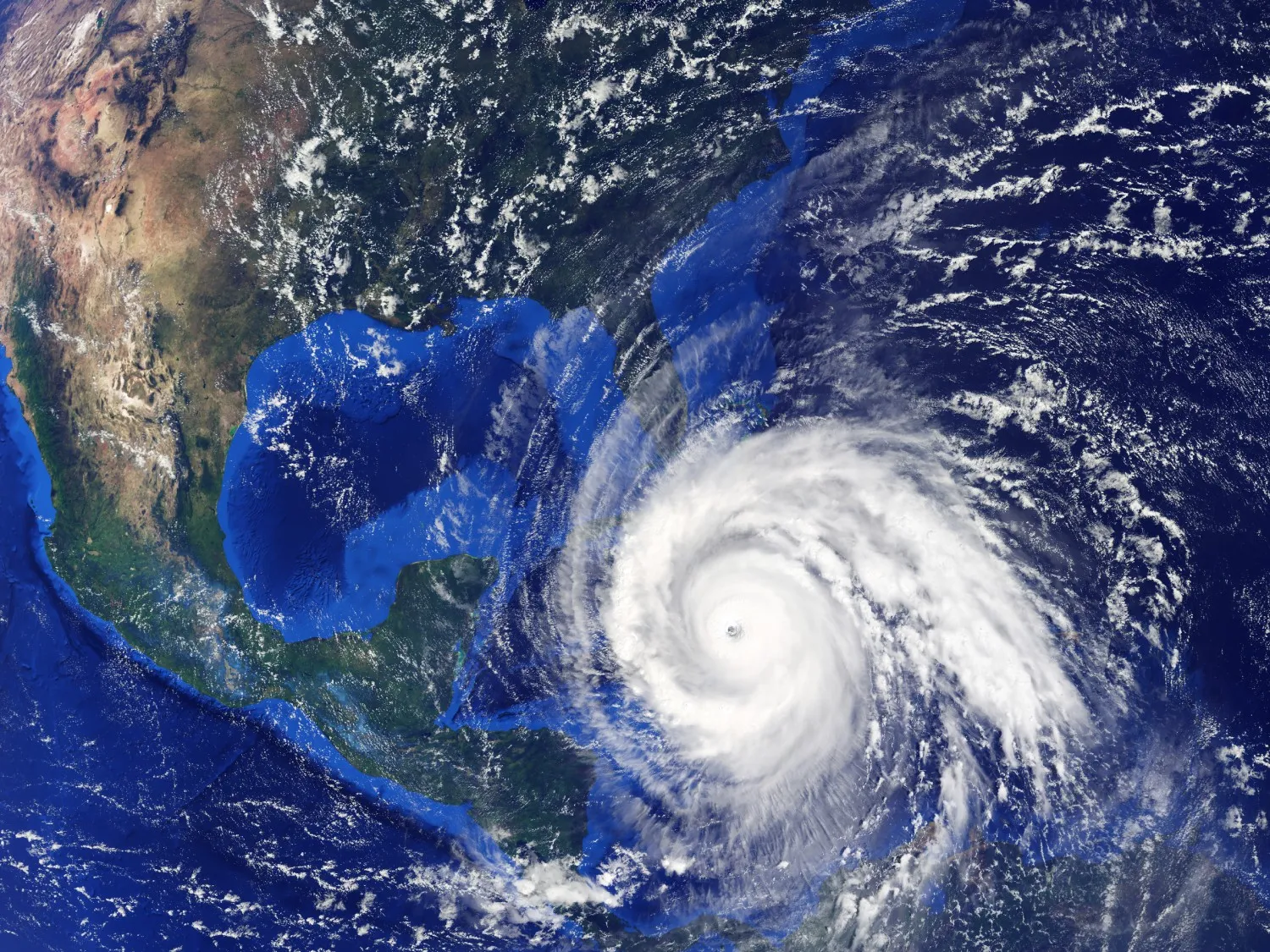The urgency of climate change is more evident than ever. Travel & Tourism is strongly affected by its impacts, but like many other sectors, is also a significant emitter of greenhouse gas (GHG) emissions, thereby actively contributing to climate change. It is therefore of utmost importance to decarbonise the sector as quickly as possible and reach net zero by 2050.
Driven by our Members and the real desire to build back better and move towards a net zero emissions future, WTTC is committed to continuing its efforts to support the sector in combatting climate change through a range of activities including advocacy, research, guidance and collaboration with an incredible network of partners and businesses.
Our Climate Initiatives and Reports
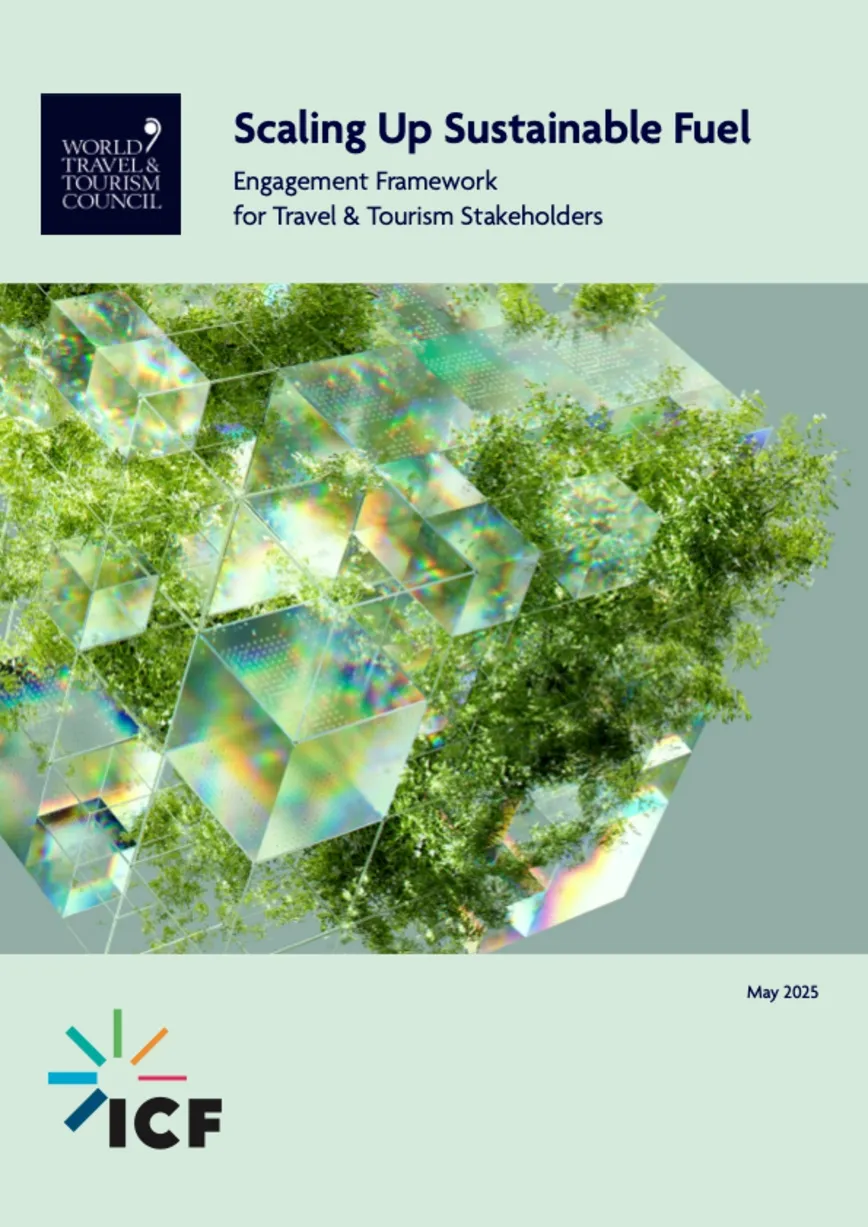
Scaling up Sustainable Fuel: Engagement Framework for Travel & Tourism Stakeholders
WTTC and ICF present a Sustainable Fuel Engagement Framework to accelerate the scaling up and adoption of sustainable fuel.
This initiative empowers all members of the Travel & Tourism value chain – including hotels, destinations, tour operators, and travel agencies – to participate in this critical area of decarbonisation, alongside aviation and maritime transport operators.
The future of travel is sustainable, and with this framework, your business can be part of the journey towards greener Travel & Tourism.
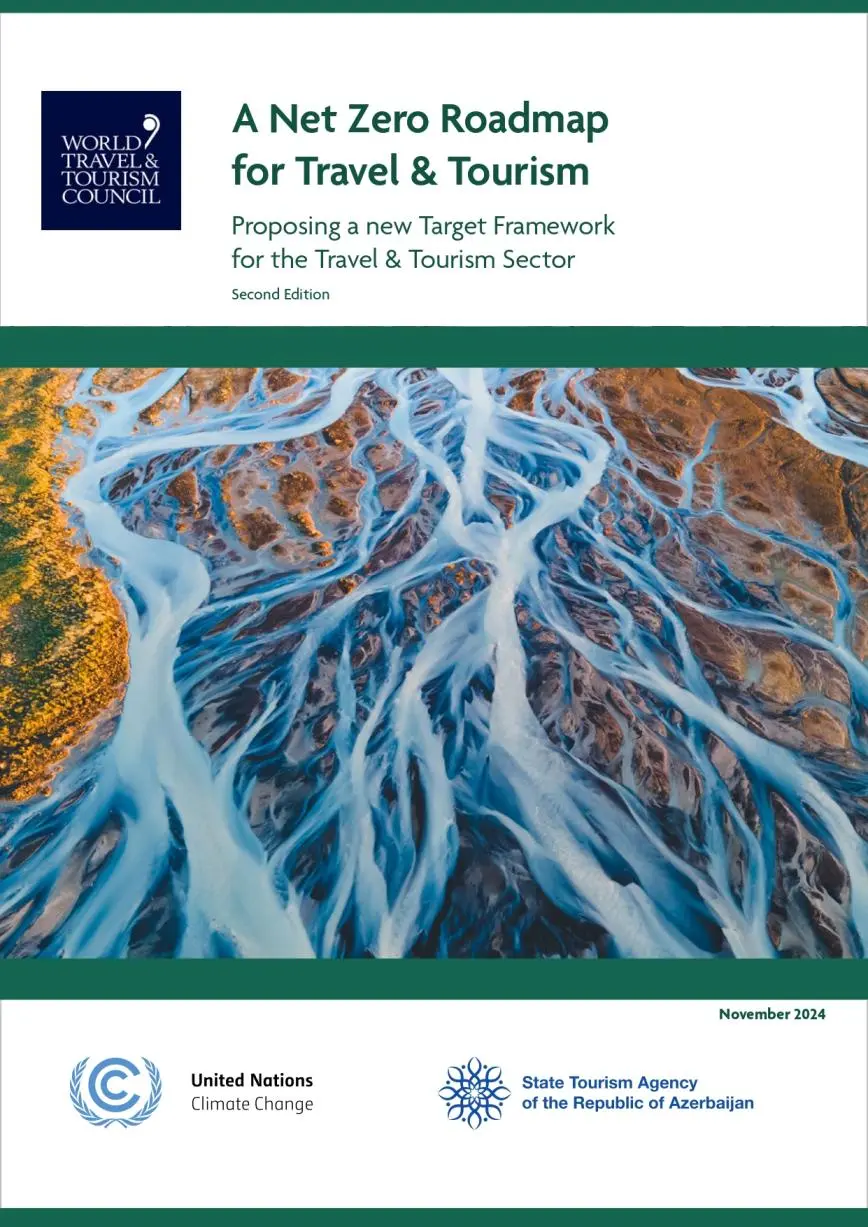
A Net Zero Roadmap for Travel & Tourism
The first ever net zero roadmap for the Travel & Tourism sector as a whole, developed in collaboration with UNEP and Accenture and endorsed by the UNFCCC, was launched at COP26 in Glasgow, 2021. It aims to offer a better understanding of the status quo of climate action of Travel & Tourism businesses within selected industries, as well as current challenges, opportunities and needs.
It also provides a decarbonisation corridor framework demonstrating what net zero journeys could look like for different types of businesses and gives guidance and recommendations on potential climate action.
A Net Zero Roadmap for Travel & Tourism - 2nd Edition
This second edition aims to offer insights into the status quo of climate action for the Travel & Tourism sector, as of 2024. Key challenges across selected industries are discussed, supported by a tangible action plan to help the sector achieve net zero emissions by 2050.
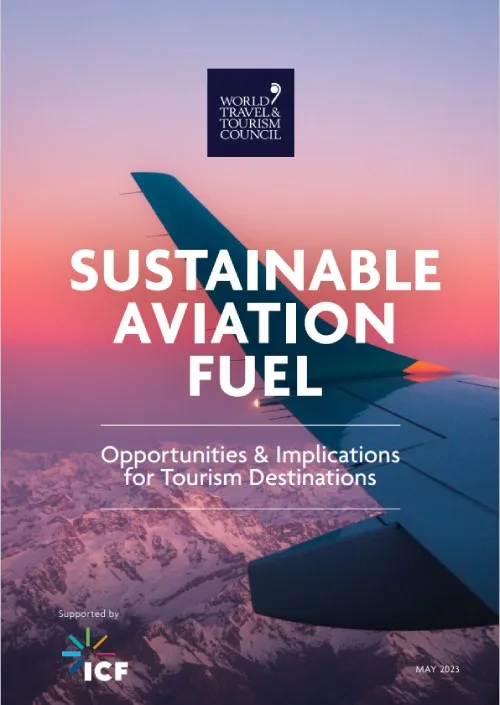
SAF: Opportunities & Implications for Tourism Destinations
Sustainable Aviation Fuel (SAF) provides an immediate and significant opportunity to reduce aviation GHG emissions, but the scale of transiting from fossil fuels that have served the industry for more than 100 years, to a new generation of sustainable fuels that are not made from crude oil is considerable.
To embrace the opportunities presented by SAF and address the challenges, WTTC and ICF have jointly developed this short paper which recommends tourism destinations undertake three critical actions which are to:
- Share this paper widely with tourism partners to improve tourism stakeholder awareness and understanding of SAF.
- Collaborate with aviation stakeholders and national travel partners to call on national governments to create a public/private task force in each country, dedicated to decarbonising transport, with working groups focussed on each mode of travel.
- Encourage national governments to undertake a SAF Feasibility Study.
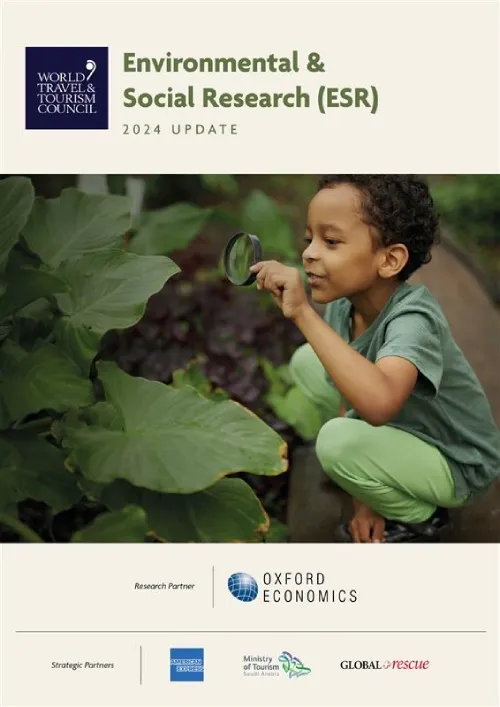
Travel & Tourism Environmental & Social Research: 2024 Update (Summary of Findings)
Explore the latest findings on the environmental and social footprint of the Travel & Tourism sector and its contribution towards UN SDGs. This report includes the contribution to greenhouse gas emissions, female and youth employment, tax contributions and more.
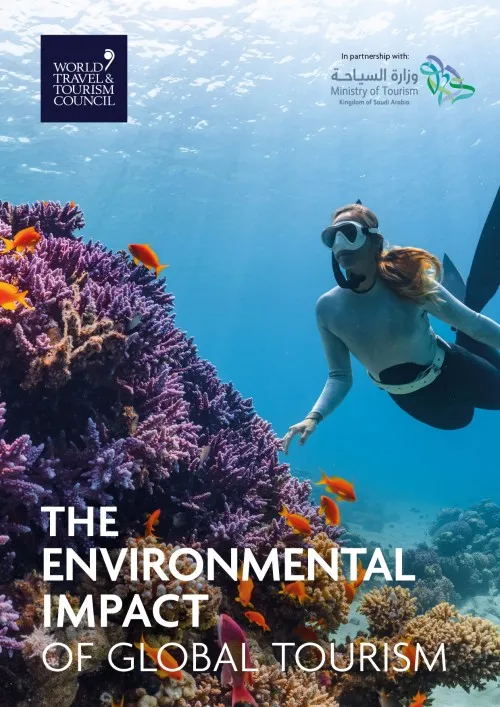
The Environmental Impact of Global Tourism Report 2010-2022
This report from WTTC and the Sustainable Tourism Global Center (STGC), in partnership with the Ministry of Tourism of Saudi Arabia and supported by Oxford Economics, analyses the environmental footprint of Travel & Tourism. It provides the data crucial to steering the sector towards its sustainable goals.
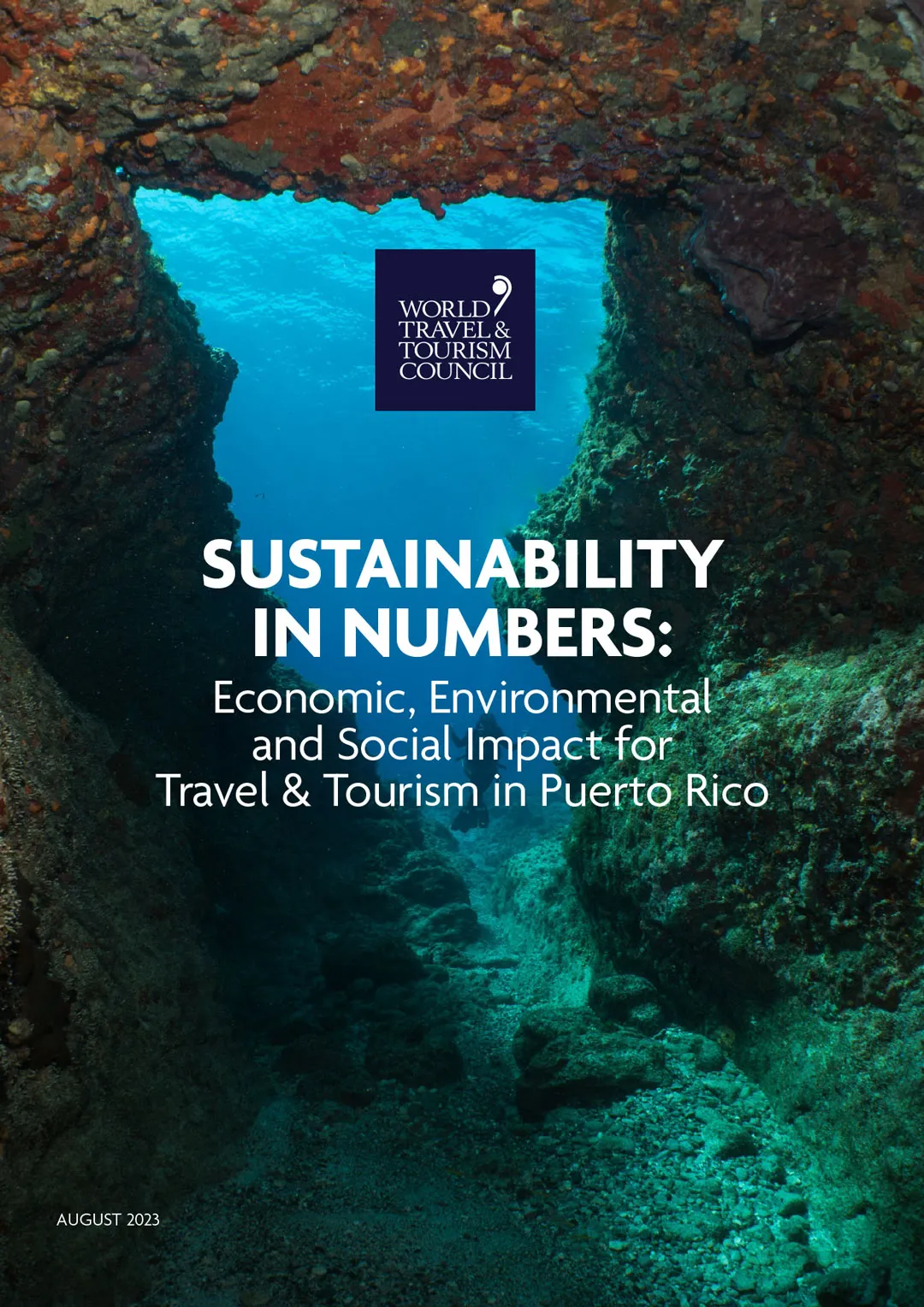
Sustainability in Numbers: Travel & Tourism in Puerto Rico
The Puerto Rico Tourism Company joined forces with WTTC and Oxford Economics to apply their ground breaking analyses of the global economic, social and environmental impacts of Travel & Tourism to Puerto Rico.
The report uses this analysis to produce an assessment of the sector in Puerto Rico, describing its social and economic importance and benchmarking its environmental performance against the wider Caribbean region and the US.
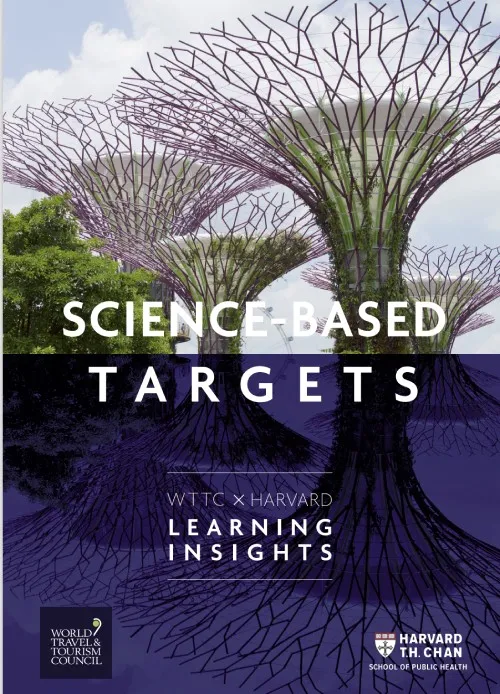
WTTC x Harvard Learning Insights: Science-Based Targets
Science-based targets are based on the concept of a global carbon budget. By accounting for the GHG emissions put into the atmosphere since the Industrial Revolution began, and understanding how these affect the climate, it is possible to calculate the maximal level of emissions that would enable global warming levels to remain below 2°C. Science-based targets are powerful tools that allow businesses to align themselves with the commitments made under the Paris Agreement.
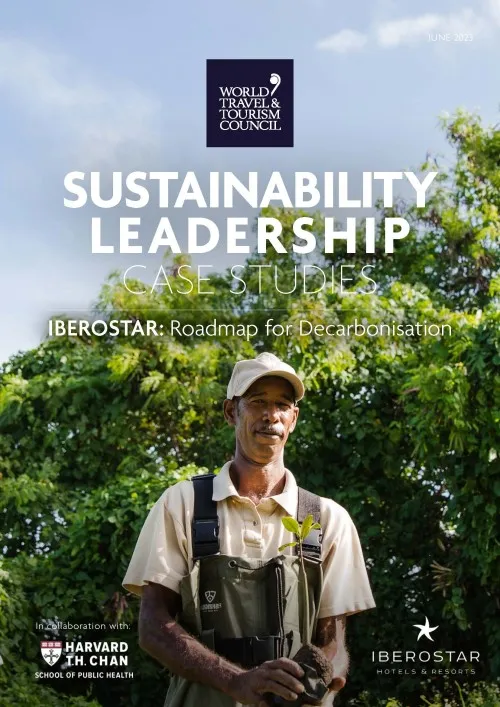
Sustainability Leadership Case Studies / Iberostar: Roadmap for Decarbonisation
This case study describes the work of Iberostar Hotels and Resorts (Iberostar) to decarbonise, so that learning to date can be shared across the Travel & Tourism sector and beyond. It provides a scalable roadmap for decarbonisation based on the success of Iberostar’s programme. If others adopt the same approach, they will help to accelerate pro-sustainability efforts to decarbonise, to mitigate climate change, and to boost climate adaptation efforts.
Glasgow Declaration on Climate Action in Tourism
WTTC is a signatory of the Glasgow Declaration on Climate Action in Tourism, committing to act now and accelerate climate action to cut global tourism emissions by at least half over the next decade and reach net zero emissions as soon as possible before 2050.
Other Key Publications
Below are some of our key publications on sustainability. You can find more on our Research Hub.
Related Events and Webinars
Here are our webinars and events that are related to sustainability:
